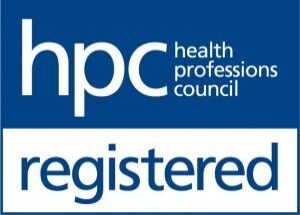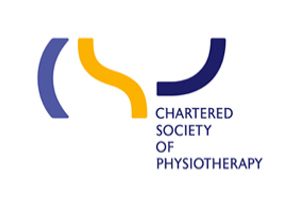PARKINSON’S DISEASE PHYSIOTHERAPY IN LONDON AND ESSEX
Parkinson’s Disease is a progressive neurological condition. The symptoms can often appear slowly and over a long period of time. With this condition, there is a lack of a chemical called dopamine in the brain.
Currently, there is no cure for Parkinson's Disease, but its symptoms can be treated with various therapies and medications.
Most people who develop Parkinson’s are aged 50 or over, but younger people can get it too. In the UK it is estimated that one person in every 500 has Parkinson’s, that’s about 127,000 people.
Parkinson’s is a condition affecting mobility, posture, and the ability to perform daily activities, often making everyday tasks more challenging.

What are the common signs of Parkinson's Disease?
Early symptoms of this disease are subtle and occur gradually. These include:
Involuntary shaking of particular parts of the body, slow movement, stiff muscles, and muscle stiffness are common features. There are a wide range of other physical and psychological symptoms that are often reported. The most common include:
- Anxiety and depression
- Apathy
- Difficulty sleeping
- Smaller handwriting
- Fatigue
- Bowel and bladder problems
- Cramps
- Loss of smell
- Balance problems
- Memory problems
- Pain and physical discomfort
- Walking difficulties
Not everyone will experience all of these symptoms. Even if people do, they won’t necessarily experience the symptoms in quite the same order or at the same intensity.
What are the types and stages of Parkinson's Disease?
There are two main types of Parkinson’s Disease: Idiopathic and secondary Parkinsonism. Idiopathic tends to have no known causes, whereas secondary may be caused by a variety of factors, ranging from medications to head trauma. There are variations and subtypes under these two types.
The progression of Parkinson’s disease can vary from person to person, and not all individuals will experience all stages. In the early stages, symptoms are usually mild and may not require immediate treatment. Certain medications, such as monoamine oxidase-B (MAO-B) inhibitors, are often considered in early Parkinson's disease to help increase dopamine levels. Currently, the Unified Parkinson’s Disease Rating Scale (UPDRS) is a rating tool used to gauge the severity and progression of Parkinson’s disease. It consists of six segments and is used for monitoring the response to medications. There is ongoing development of new physiotherapy approaches and regular updates to treatment guidelines as new evidence emerges.
What are the main causes of Parkinson's Disease?
It is currently not known as to why the loss of nerve cells associated with Parkinson's disease occurs. Many researchers now believe that a combination of genetic and environmental factors are responsible.
Parkinson’s Disease is occasionally inherited, it can be the result of faulty genes being passed to a child by their parents. It is rare for the disease to be inherited in this way.
There is a possibility that pesticides and herbicides used in farming as well as traffic and industrial pollution may contribute to the cause.
How do you diagnose Parkinson's Disease?
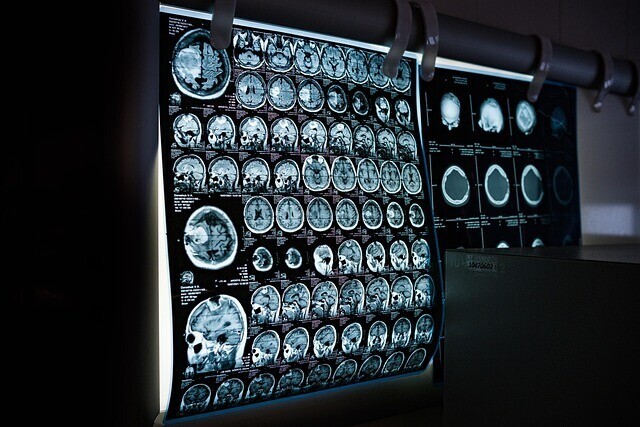
It can take months or years before a diagnosis of Parkinson’s disease is made. This is because it mimics other conditions, such as essential tremor. Also, at present, there are no definitive tests. A Neurologist is often the person who will make the diagnosis. They will often take a detailed history and examine you physically. As part of the diagnostic process, a thorough assessment is performed to evaluate your condition, capabilities, and needs. Healthcare professionals also work to identify specific symptoms and challenges you may be experiencing. You may find it helpful to track your symptoms in a diary to discuss this at your consultation.
After the appointment with the Neurologist, it may be suggested that you trial medication. If these medications improve your symptoms, a diagnosis of Parkinson’s Disease may be confirmed. It may also be suggested that you have a scan to help make a diagnosis. It is worth noting that scans alone can’t make a definite diagnosis of Parkinson’s.
It is anticipated that research into this area will allow faster and easier diagnostics of Parkinson’s Disease in the future.
European Physiotherapy Guideline
The European Physiotherapy Guideline for Parkinson’s disease sets out a clear, evidence-based approach for physiotherapists to help people manage their symptoms and maintain their quality of life. This guideline recognises the crucial role of Parkinson's physiotherapy in addressing motor symptoms, improving balance, and supporting everyday activities. It encourages physiotherapists to work as part of a multidisciplinary team, collaborating closely with occupational therapists and speech therapists to deliver comprehensive care.
A key focus of the guideline is on the benefits of structured exercise programmes, including resistance training and treadmill training, which have been shown to help strengthen muscles, improve mobility, and enhance overall fitness levels. These treatment modalities are tailored to each individual’s needs and can be adapted as the condition progresses. By following the European Physiotherapy Guideline, Neuro physiotherapists can provide targeted support that helps people with Parkinson’s disease stay active, maintain good posture, and manage movement problems more effectively. This approach not only helps to relieve symptoms but also supports independence and a better quality of life.
What is the outlook?
It can be difficult to accurately predict the progression. As the disease progresses, managing symptoms becomes increasingly important, often requiring adjustments in daily routines, exercise, and diet. People often need to work alongside their doctor to adjust medication dosages, and various treatments may be needed to address changing symptoms over time. Support may also be required from different health professionals along the way, such as Speech and language therapists for swallowing problems.
What advise would you give to loved ones?
This section offers advice for supporting someone with Parkinson's. Attend healthcare appointments and gently prompt on the information taught in these appointments, if appropriate. For example, if cues are taught for freezing of gait, it may be helpful to prompt someone when they freeze. Be flexible, symptoms can vary throughout the day and week on week. People with Parkinson’s need their medication on time every time, if you notice medications are missed, find ways help them get them on time. Adapt and work as a team to help support someone maintain their independence, for as long as possible, and achieve their goals.
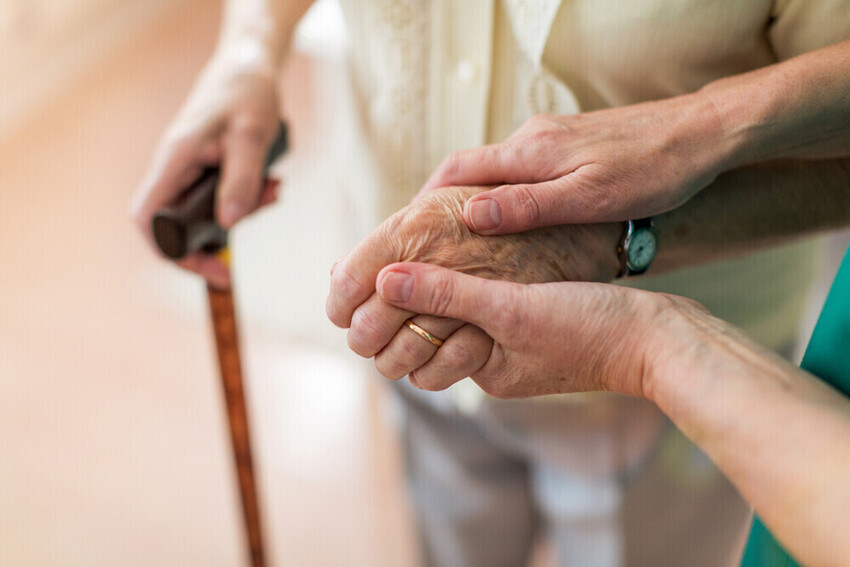
Providing advice and encouragement can help your loved one cope with the emotional and physical challenges of Parkinson's. Supporting them with coping strategies, such as joining support groups or engaging in recommended exercises, can make a significant difference in their quality of life.
London
Specialist Physiotherapy

Our specialist physiotherapy service covers a wide range of areas in Central and Greater London
Essex
Specialist Physiotherapy

Our Essex physiotherapists cover areas including Benfleet, Basildon, Rayleigh, Southend and Chelmsford
What home changes should I make?
Home Safety and Accessibility for Parkinson’s
It can be helpful for a healthcare professional, such as a health professional or specifically an Occupational therapist, to view the home if there are difficulties with safety or accessibility. Here are some recommendations:
- Clear trip hazards in the house such as wires and rugs.
- Adequate lighting can reduce falls risk. Motion sensor lights can be particularly helpful.
- Grab rails may be helpful near steps at entrance and exits, near toilets and showers and along staircases.
- Non-slip surfaces may be of use in the kitchen and bathroom.
- Chairs that are firm with armrests on each side can be easier to stand from than low sofas. Assistive devices such as long-handle shoehorns or grab aids, may make day to day tasks easier.
WILL I BENEFIT FROM PHYSIOTHERAPY?
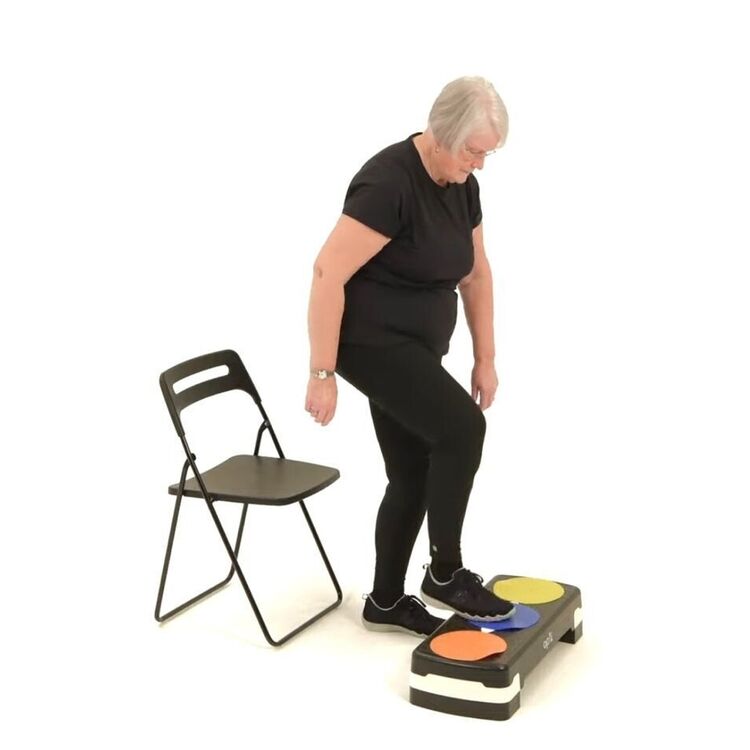
Parkinson's Physiotherapy is vital to helping manage symptoms of Parkinson’s Disease and maintaining quality of life. Regular physical activity is especially important for people with Parkinson's, as it can improve mobility, strength, and overall well-being. You may be able to access this service through the NHS via your Neurologist or Gp. Most people who are newly diagnosed will also now receive an appointment by a Physiotherapist to start exercise early. As the disease progresses, the type of exercises that the person may benefit from are likely to change.
Physiotherapists will provide a personalised programme that aims to maintain physical function, for as long as possible. This may include strengthening exercises to improve muscle strength, flexibility, posture, cardiovascular fitness and coordination, which are particularly beneficial for patients with Parkinson's. The effectiveness of physiotherapy interventions has been demonstrated in improving mobility, balance, and quality of life for patients. Present treatment modalities include both conventional and innovative physiotherapy approaches, tailored to individual needs. If you are experiencing freezing of gait, a Physiotherapist is likely to explore strategies such as cueing that may help you. Following prescribed exercise routines and treatments is essential for achieving the best outcomes. Pain relief is also a key goal of physiotherapy, addressing musculoskeletal pain and discomfort. A wide range of therapies are available to support patients with Parkinson's, helping to manage symptoms and enhance daily functioning.
WHAT IS CUEING?
There are certain situations where people with Parkinson’s are more likely to experience freezing of gait, such as in narrow spaces, busy environments, whilst turning or during initiation of movement. These may be exacerbated by dual tasking, stress or distractions. Cueing may be used to help with the motor symptoms. Cues can take various forms. Visual cueing may involve using lines or lasers as a target to walk over, auditory cueing may involve using a metronome or rhythmic music, tactile cueing may involve strategies such as shifting weight. The cues can help bypass the area of the brain impaired and help improve overall function. The cues are likely to need exploration with a health provider and are likely to change over time and may differ depending on the location.
Language Therapy and Communication Support
Language therapy and communication support play a vital role in helping individuals with Parkinson’s disease overcome challenges related to speech, swallowing, and communication. Many people with Parkinson’s experience changes in their voice, clarity of speech, or find it harder to express themselves as the condition progresses. A speech and language therapist can provide tailored exercises to strengthen the muscles involved in speaking and swallowing, helping to maintain and even improve these essential skills.
Therapists may also introduce practical strategies, such as using visual aids, electronic devices, or alternative communication methods like writing or gestures, to support effective communication. These approaches are designed to help individuals maintain their ability to connect with others and participate in everyday activities. Parkinson’s UK offers a range of resources, including information on local groups and online support, to help people access language therapy and stay engaged with their support network.
By accessing language therapy and communication support, people with Parkinson’s disease can strengthen their speech muscles, improve their ability to communicate, and maintain their independence and quality of life as their needs change.
BOOKING AN APPOINTMENT
If you would like to find out more about Estuary Physios Parkinson’s disease service, please get in touch with us today and speak with one of our clinicians.
HELPFUL RESOURCES:
OTHER CONDITIONS WE TREAT:
We understand that our clients often have a range of medical conditions. Our therapists have a broad range of backgrounds. For example, someone with Parkinson’s disease may also find they are having difficulty with falls. We have specialist falls therapists who can work alongside a Neurology Physiotherapist to get the best results. Here are some other conditions we treat here at Estuary Physio:
Frequently Asked Questions about Parkinson’s Disease and Physiotherapy
What does physiotherapy do for Parkinson’s disease?
Physiotherapy helps people with Parkinson’s maintain mobility, balance and strength. Exercises and strategies such as cueing, treadmill training and resistance work can improve movement and reduce stiffness, helping people stay independent for longer.
When should someone with Parkinson’s see a physiotherapist?
Physiotherapy is beneficial from diagnosis onwards. Early intervention helps establish good movement habits and may slow the decline in mobility. People can access physiotherapy through their GP, neurologist or privately with Estuary Physio.
Can physiotherapy help with freezing of gait?
Yes. Physiotherapists use cueing strategies — such as visual markers, rhythmic sounds or weight-shifting techniques — to help overcome freezing episodes and improve walking confidence.
How does exercise benefit people with Parkinson’s?
Regular, structured exercise improves flexibility, posture, muscle strength and cardiovascular health. Evidence shows it can reduce symptoms and improve quality of life for people with Parkinson’s disease.
What home adaptations can help someone with Parkinson’s?
Reducing trip hazards, adding grab rails, improving lighting and using firm chairs with armrests can all improve safety. Occupational therapists can assess the home to recommend specific equipment and modifications.
What support is available for carers and loved ones?
Attending healthcare appointments, encouraging medication on time and supporting exercise routines can make a real difference. Joining support groups and seeking guidance from professionals can also help families cope emotionally and practically.
Is Parkinson’s disease curable?
There is currently no cure for Parkinson’s disease, but a combination of medication, physiotherapy and lifestyle strategies can help manage symptoms effectively and maintain independence.
![]()
Get in touch and speak to our therapy team to find out more.
Medical Review
The information on this page has been reviewed for accuracy by Barry Ford BSc MCSP, Physiotherapist




